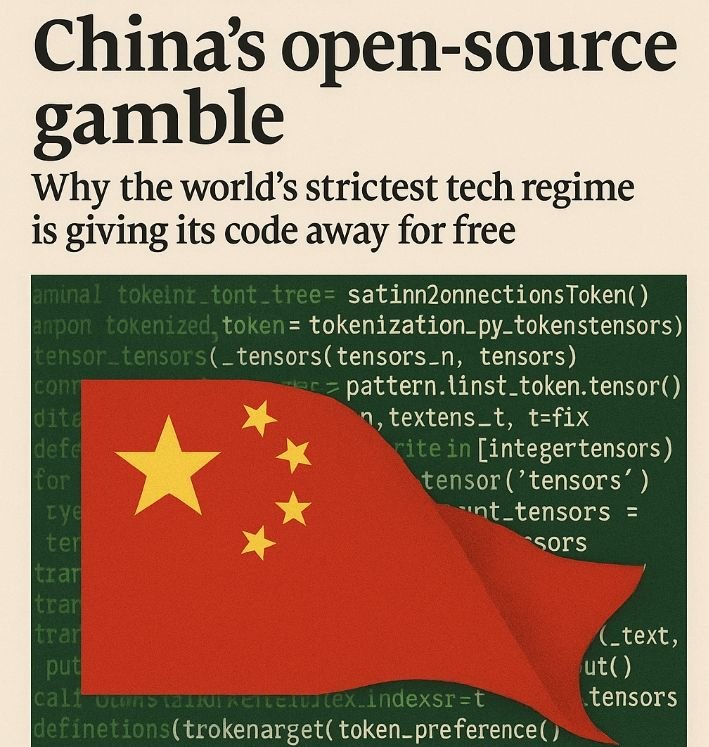
Information is power and data is currency, it might seem unthinkable that one of the most tightly controlled, state-driven nations on Earth is giving away its important technology for free.
that’s exactly what China is doing.
open-source software are digital tools and systems like Linux, Kubernetes, and Apache that anyone can use, modify, or build upon without paying a cent. They are the bricks and mortar of the internet, used by massive corporations, scrappy startups, and solo developers alike.
Historically, the champions of this collaborative digital movement came from the West Silicon Valley, Berlin, Bengaluru. China, for a long time, stood on the sidelines, wary of a culture that promotes openness, transparency, and decentralization.
Those principles seemed odds with the Chinese Communist Party’s core ideology of control. But something has changed.
Today, China isn’t just participating in open-source development. It’s dominating it.
Behind the firewalls and state control, a quiet but powerful shift has been happening. Chinese developers have surged onto platforms like GitHub the world’s largest open-source software hub. According to recent data, China now hosts the third-largest developer base on GitHub, behind only the United States and India. When it comes to artificial intelligence, it’s not just catching up it’s sprinting ahead.
According to the analytics site Artificial Analysis, 12 of the top 15 open-source AI models in the world now originate from China. A very good example is Deep seek.
Although, this new open embrace of openness raises concern. After all, how does a government that censors things and controls online discourse reconcile itself with the freewheeling, often chaotic world of open-source collaboration?
Chinese firms may be giving code away, but they’re still backed and often tightly monitored by the state. Open-source projects from China may be global in access, but the environment in which they’re developed is anything but free.
This contradiction giving to the world while holding its own citizens on a tight leash may prove to be one of the defining tensions of China’s tech future.
China’s open-source surge has profound implications. It challenges the West’s long-standing monopoly on software innovation. It forces American and European firms to compete not just with commercial products from China, but with free tools backed by deep talent and generous funding.
It also raises tough questions: Will this open-source generosity extend to real transparency, or is it a Trojan horse? Will Chinese models become the backbone of global systems from schools to hospitals to military tools built on infrastructure the West no longer fully controls?
Only time will tell.
But one thing is certain: the age of viewing China as merely a “copycat” tech power is over. Today, it’s a builder, a leader and yes, even a giver.